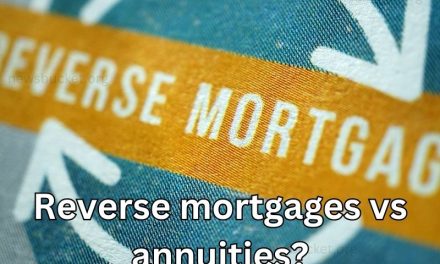Introduction to Financial Literacy
Have you ever found yourself staring at your bank statement, wondering how your savings could disappear so quickly? You’re not alone. A significant number of adults struggle with basic financial principles, impacting their ability to make wise money decisions.
Definition and Importance of Financial Literacy
Financial literacy is more than just a set of skills—it’s a necessary foundation for anyone aiming to achieve financial stability and independence. It encompasses the knowledge required to make informed and effective decisions through one’s life stages. Here’s why it matters:
- Empowerment: Understanding financial concepts empowers individuals to meet their goals, whether it’s buying a home, saving for retirement, or funding education.
- Security: With proper knowledge, people can avoid the pitfalls of debt, financial scams, and economic instability.
- Long-term well-being: Financially educated individuals are better equipped to weather economic downturns and plan for future needs.
In the latest report on financial literacy from the Federal Reserve, the findings emphasize a crucial gap in the average American’s financial understanding, underscoring the necessity of enhancing our national financial education.
Preview of Personal Story
As someone who transitioned from a novice in money management to a licensed financial advisor, I have firsthand experience of how daunting the financial world can be without the right knowledge. Here’s what I learned:
- Starting point: My early financial decisions—or lack thereof—stemmed from a fundamental ignorance about managing finances.
- The catalyst for change: It was not until I faced the repercussions of inadequate financial planning that I realized the importance of financial education.
- New perspective: The journey to becoming financially literate opened my eyes to the principles of investment and the safeguarding power of insurance.
Understanding these elements is not just about making money; it’s about creating a buffer against life’s uncertainties, a lesson I learned the hard way. For those looking to deepen their understanding of how various insurance products can serve as both protection and investment tools, exploring understanding Variable Universal Life Insurance can provide valuable insights.

Our Financial Journey
Early Financial Challenges
Our journey into the world of financial literacy began not out of curiosity, but necessity. When my wife and I first merged our financial lives, neither of us had a clear understanding of effective money management. We navigated through our early years of marriage without a budget, driven by the naive assumption that our incomes would always cover our expenses. Here’s what that looked like:
- We didn’t prioritize savings or understand the significance of an emergency fund.
- Budgeting was a foreign concept; our spending was reactive rather than planned.
- Investments seemed like options only for the wealthy, not ordinary couples like us.
This lack of knowledge inevitably led us to make decisions that were not just poor but had lasting impacts on our financial well-being.
The Turning Point
The real change began after I ventured into a business with little more than enthusiasm. My experience was minimal, my preparation was inadequate, and the outcome was disastrous. Here’s the breakdown:
- The business failed within six months, plunging us into debt.
- Our financial instability was exacerbated when my wife’s steady job in the BPO industry vanished as her company declared bankruptcy.
- With no income and increasing debts, the reality of our precarious financial state hit hard.
This series of unfortunate events forced us to confront our financial ignorance head-on. It became clear that surviving and eventually thriving would require a fundamental shift in our approach to finances.
Embracing Education
The opportunity to become licensed financial advisors came when we were at our lowest. It was a chance not just to rebuild but to rebuild on a foundation of solid financial understanding. The process was transformative:
- We learned about the critical role of insurance in a financial plan.
- Investment strategies were no longer abstract concepts, but practical tools to secure our future.
- Most importantly, we understood that financial education was a continuous journey, not a destination.
Becoming educated in finances transformed us from victims of our circumstances to architects of our future. We no longer passively reacted to financial challenges; we anticipated and planned for them.
Key Financial Concepts Explained
Understanding Investment Vehicles
As we began our education in financial planning, one of the first areas we explored was the variety of investment vehicles available. Each type of investment offers different benefits and risks, which we need to understand thoroughly to make informed choices. Here’s what we learned:
- Stocks: Buying shares of a company meant we could potentially benefit from its growth, but it also involved risk, particularly with market volatility.
- Bonds: These are generally safer than stocks, providing a fixed income over time. They became a crucial part of our strategy for steady, predictable earnings.
- Real Estate: Investing in property could yield significant returns through rental income and value appreciation. However, it requires substantial capital and management.
By diversifying our investments across these vehicles, we could mitigate risks and increase the potential for a stable financial future.
The Role of Insurance in Financial Planning
Our training also underscored the importance of insurance as a fundamental component of comprehensive financial planning. Here’s how we came to see insurance:
- It’s not just about risk mitigation; it’s about ensuring financial continuity for ourselves and our loved ones.
- Life insurance, especially, is crucial. It can act as a financial safety net, providing family members with support in the event of unforeseen circumstances.
- Variable Universal Life Insurance is particularly interesting—it combines life insurance with an investment component, growing cash value that can be invested in a variety of different funds.
This dual-purpose product not only offers protection but also contributes to our investment goals, aligning with our newfound understanding of financial strategy.
Creating a Financial Plan
Learning to create a robust financial plan was perhaps the most empowering aspect of our financial education. A sound financial plan is a roadmap to achieving both short-term and long-term goals. Here’s how we approach it:
- Setting Clear Goals: We define what we want to achieve, such as saving for retirement, funding our children’s education, or buying a home.
- Budgeting: We track our income and expenses, ensuring that we spend less than we earn and save the difference.
- Emergency Fund: Building and maintaining an emergency fund is non-negotiable—it protects us against unexpected financial shocks.
Through disciplined planning and commitment to our goals, we have been able to take control of our financial destiny, turning theoretical knowledge into practical, life-changing strategies.

Lessons Learned and Looking Ahead
Our Financial Recovery
The transformative power of financial literacy has been a pivotal theme in our journey. Once overwhelmed by debt and financial uncertainty, we have now established a foundation that promises not just stability but growth. Here’s a snapshot of our progress:
- We now have a fully funded emergency fund, which covers six months of our living expenses.
- Our investment portfolio includes a diverse mix of stocks, bonds, and real estate, tailored to balance risk and reward effectively.
- Regular contributions to retirement accounts ensure that our future is secure and that we’re not solely reliant on our current income.
These measures are simple yet profound, illustrating how the right knowledge and tools can turn financial despair into deliberate, strategic prosperity.
Encouragement and Advice for Readers
If you’re standing where we once did, facing financial confusion or instability, remember that it’s never too late to seek knowledge and make changes. Here are a few steps to consider:
- Educate Yourself: Whether through books, courses, or articles, learning about financial management is the first step towards empowerment.
- Start Small: Even small changes in how you manage your money can have big impacts over time. Begin with creating a simple budget and sticking to it.
- Seek Professional Help: Don’t hesitate to consult with financial advisors. Their expertise can be invaluable, particularly when making complex financial decisions.
We hope our story inspires you to take that first step toward financial literacy. Remember, each decision you make shapes your future financial landscape.
In closing, embracing financial education has not just changed our finances; it has changed our lives. From living paycheck to paycheck, we now enjoy the peace and security that comes with financial stability. More importantly, we know to maintain this stability and build upon it in the years to come. Here’s to making informed decisions and to a future where financial crises are merely bumps in the road, not roadblocks.
© 2024 NewsBucket.org All rights reserved. This document cannot be duplicated or distributed in any way, whether it be electronically, mechanically, by photocopying, recording, photocopying, or another method, without NewsBucket.org’s prior written consent.




